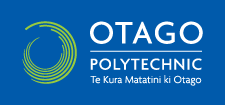1st Learning reflection
e-Learning activity summary | |
|---|---|
| Title: | Learning reflection |
| 0.5 - 1 hour | |
| Linked to the participation component of the course assignment | |
Start here
Support resources on reflective writing
|
Purpose
The purpose of this learning reflection activity is to:
|
Tasks
- Consult the resources on reflective writing above for ideas and examples of learning reflections.
- Think about the reasons we teach and its relationship to sharing knowledge freely. Revisit your prior experience and knowledge of the topic you are writing about and consider how and why you think the way you do.
- Think about WHAT you have learned but also HOW you learned it
- Think about your response or reaction to the new knowledge and insights derived from the course materials you have studied and websites you visited during this learning sequence.
Learning outcome actions
|
Assessment rubric
Competency statements
- Critical thinking: Learner demonstrates critical thinking by assessing and evaluating perspectives, opinions and issues raised in the course.
- Reflective learning: Learner demonstrates reflective practice by providing examples of how new topics relate to previous experience and provides examples of new things learned on the course.
- Peer support: Learner provides peer-learning support by objectively evaluating a minimum of three of the same e-Learning activities of fellow students as assigned by the peer evaluation system.
Evaluation criteria
Peer evaluators should:
- Confirm that the content of the post is related to the activity. For example, confirming that the learner registered the correct url for the submission.
- Validate the scope of the answers informed by the suggested word count.
- Evaluate the answer using the rubric below according to the criteria of: Relevance, connection with prior experience, evidence of new learning and critical thinking.
- Award an overall rating for the post, that is: Unsatisfactory, Acceptable, Excellent.
Relevance (2 points)
- Is the reflection relevant and meaningful to the learner and the aims of the course? (Focus on whether the learner has provided an authentic personal reflection on the topic for this activity not whether the learner agrees with your opinion on topical issues.)
- 1 = No
- 2 = Somewhat
- 3 = Yes
Connection with experience (2 points)
- Does the answer provide an example(s) of a connection with prior experience (what the learner already knows)?
- 0 = No
- 1 = Average
- 2 = Excellent
Evidence of new learning (2 points)
- Does the answer provide evidence of new learning?
- 0 = No
- 1 = Average
- 2 = Excellent
Critical thinking (4 points)
- Does the learner think critically about the topic at hand?
- 0 = Learner accepts things at face value without questioning or analysis
- 2 = Learner assesses perspectives and opinions gained from the course
- 4 = Learner assesses and evaluates perspectives and opinions and links this with own perspectives on the issue.

